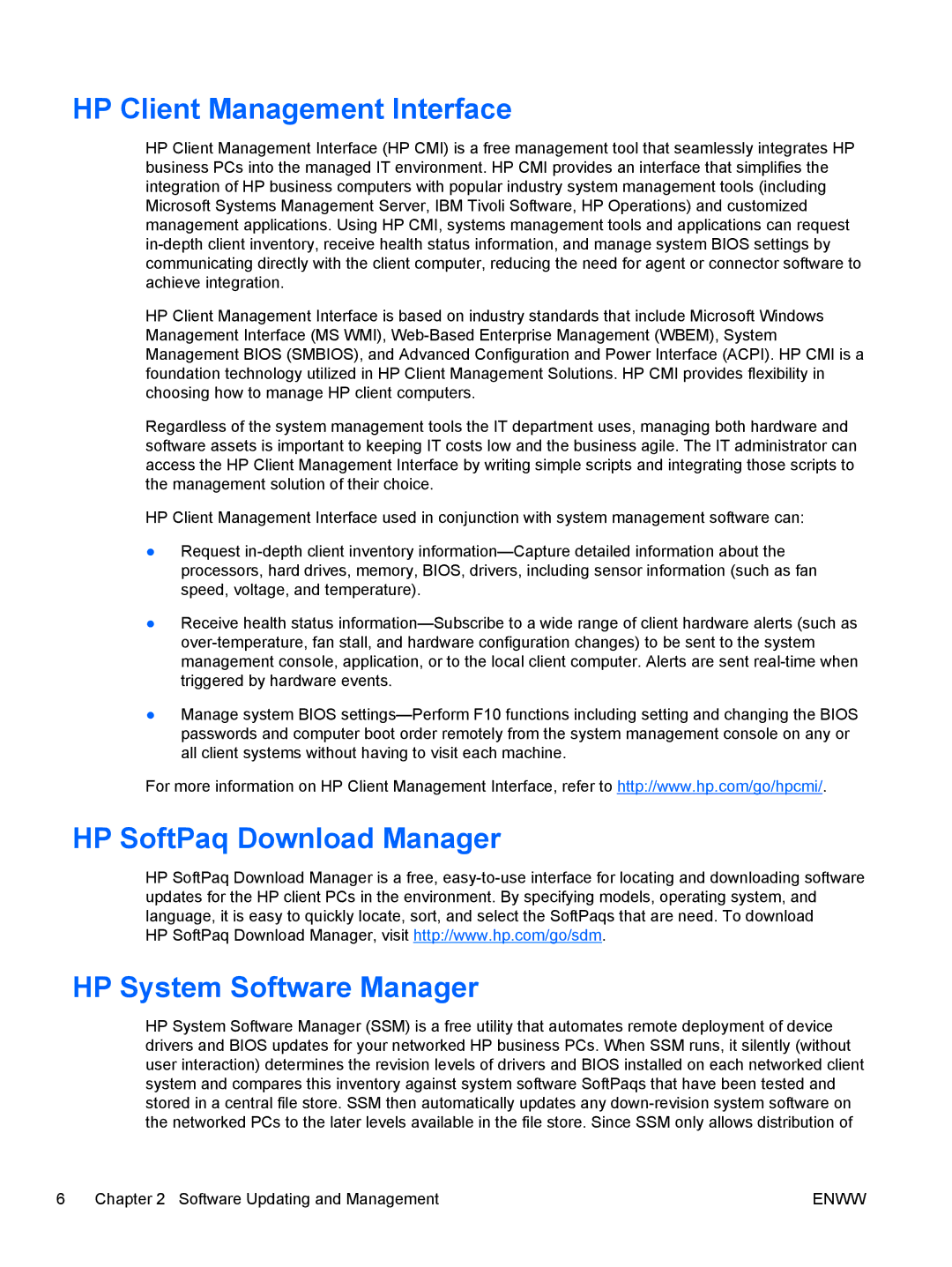HP Client Management Interface
HP Client Management Interface (HP CMI) is a free management tool that seamlessly integrates HP business PCs into the managed IT environment. HP CMI provides an interface that simplifies the integration of HP business computers with popular industry system management tools (including Microsoft Systems Management Server, IBM Tivoli Software, HP Operations) and customized management applications. Using HP CMI, systems management tools and applications can request
HP Client Management Interface is based on industry standards that include Microsoft Windows Management Interface (MS WMI),
Regardless of the system management tools the IT department uses, managing both hardware and software assets is important to keeping IT costs low and the business agile. The IT administrator can access the HP Client Management Interface by writing simple scripts and integrating those scripts to the management solution of their choice.
HP Client Management Interface used in conjunction with system management software can:
●Request
●Receive health status
●Manage system BIOS
For more information on HP Client Management Interface, refer to http://www.hp.com/go/hpcmi/.
HP SoftPaq Download Manager
HP SoftPaq Download Manager is a free,
HP SoftPaq Download Manager, visit http://www.hp.com/go/sdm.
HP System Software Manager
HP System Software Manager (SSM) is a free utility that automates remote deployment of device drivers and BIOS updates for your networked HP business PCs. When SSM runs, it silently (without user interaction) determines the revision levels of drivers and BIOS installed on each networked client system and compares this inventory against system software SoftPaqs that have been tested and stored in a central file store. SSM then automatically updates any
6 | Chapter 2 Software Updating and Management | ENWW |
